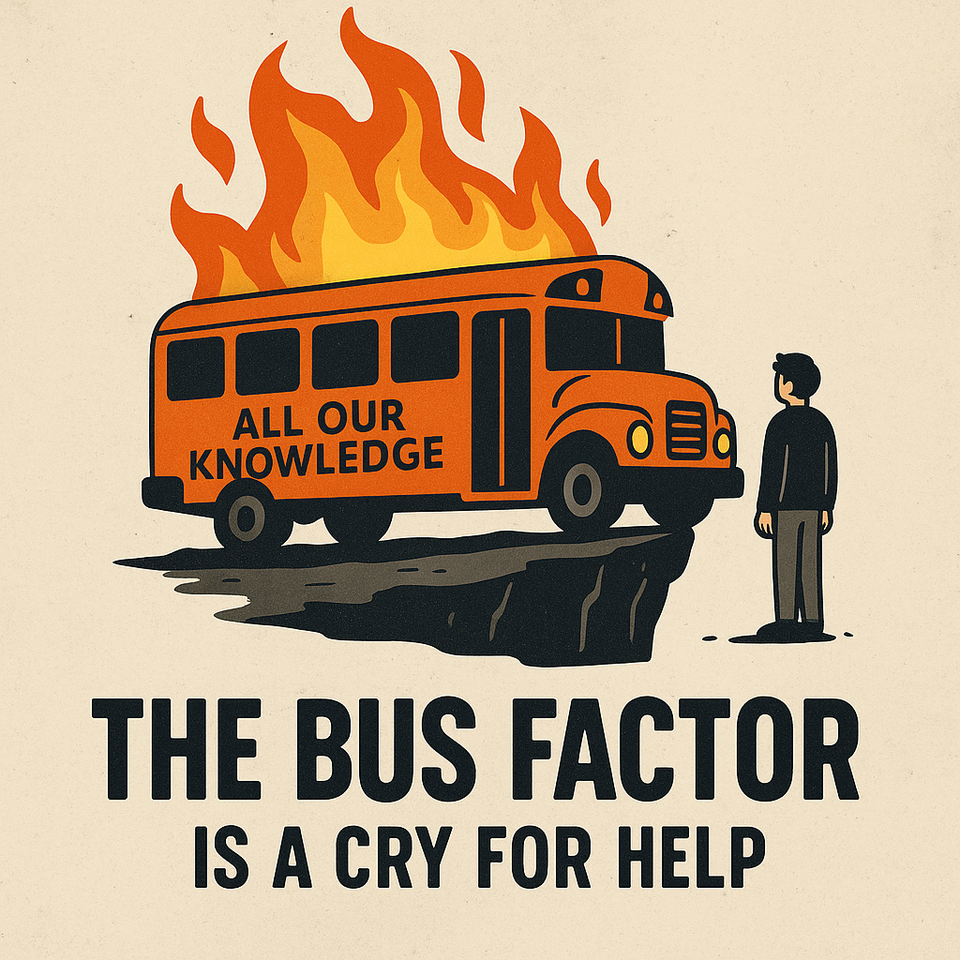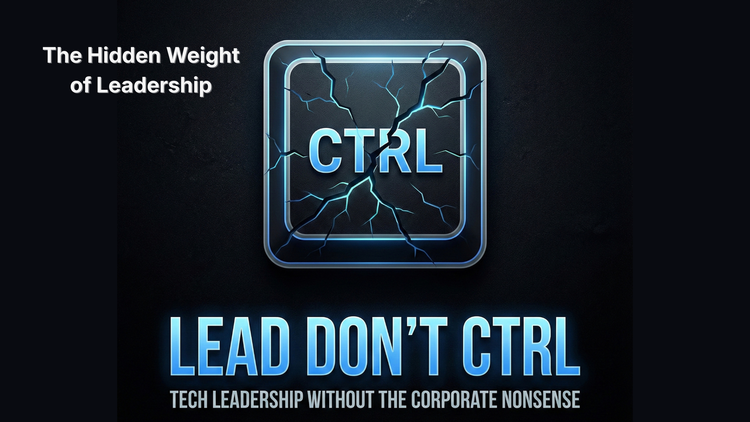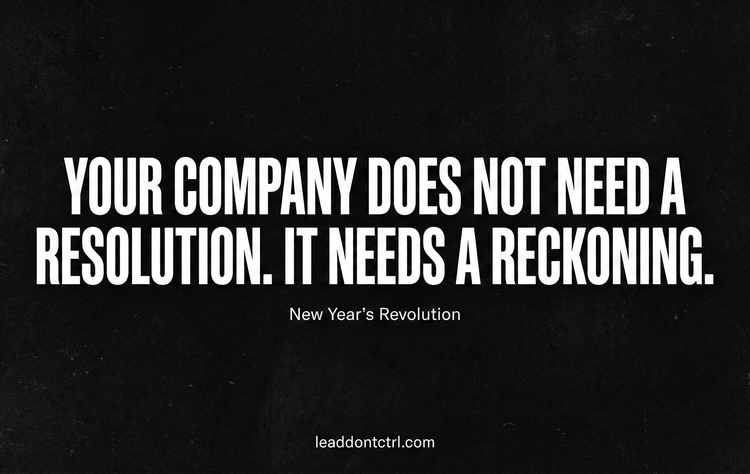The Bus Factor Is a Cry for Help

Let’s talk about the bus factor, you know, that morbid little metric that asks:
“How many people on your team could get hit by a bus before your entire product collapses?”
Yikes.
Wholesome.
But here’s the real kicker:
If your bus factor is 1… or 2… or you’re sweating just thinking about it,
That’s not a quirky engineering risk.
That’s a cry for help.
It’s Not a Badge of Honor
There’s always that person.
- The only one who knows the deployment pipeline.
- The one with the tribal knowledge duct-taping everything together.
- The one who can “just fix it” when prod melts down.
- The one who’s never allowed to take PTO without leaving behind a scroll of instructions and a prayer.
And somehow, instead of fixing this, we celebrate it:
“They’re so critical!”
“We’d be doomed without them!”
“This place would fall apart if they ever left!”
Yeah. That’s the problem.
A Low Bus Factor = Systemic Failure
It’s not heroic.
It’s not sustainable.
And it’s not the fault of that “one person who knows everything.”
It’s a failure of leadership.
- A failure to document.
- A failure to cross-train.
- A failure to build systems, not silos.
- A failure to recognize burnout until someone finally rage-quits or vanishes mid-sprint.
You’re not lucky to have “indispensable” people.
You’re lucky they haven’t left yet.
Scarcity Culture Is Killing Your Team
When the bus factor is low, the message is clear:
“Knowledge is power. Hoard it or get replaced.”
So folks protect their code like it’s currency.
They become the gatekeepers, not because they’re power-hungry, but because it’s the only thing keeping them “safe.”
But that kind of culture doesn’t scale.
It suffocates.
And when one of those key players inevitably burns out, gets poached, or just gets fed up, the rest of the team is left in the dark, holding broken pieces and a bunch of vague comments in the commit history.
How to Raise the Bus Factor (Without Hitting Anyone)
- Rotate responsibilities. Nobody “owns” prod forever.
- Document like it matters. Because it does.
- Pair program and shadow often. Learning shouldn’t be a special occasion.
- Normalize time off. No one should feel that the app collapses when they take a vacation.
- Redefine “value.” Don’t just reward output, reward the people who share knowledge, mentor others, and unblock the team.
Final Word
A low bus factor isn’t a flex.
It’s not a sign of brilliance or dedication.
It’s a siren blaring:
“You’ve built a system that relies on luck and loyalty instead of structure and sanity.”
And sooner or later, that luck runs out.
You don’t need a hero.
You need a team that’s empowered, informed, and prepared to keep going, no matter who’s out that day.
So ask yourself:
“If they got hit by a bus…”
No.
“If they got a better offer and left tomorrow, would we be okay?”
If the answer is no?
You’ve got work to do.
Lead Don't Ctrl
Hey, since you made it this far, you might actually care about becoming a better leader. Good news: I wrote an ebook that’ll help you skip years of trial and error.




